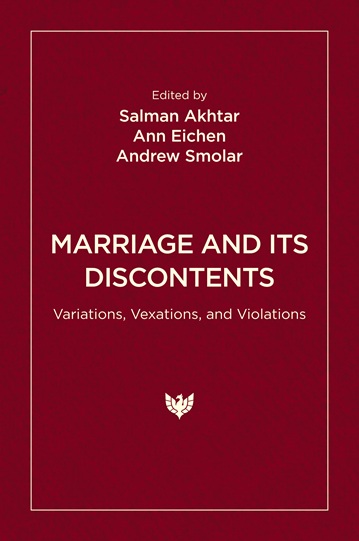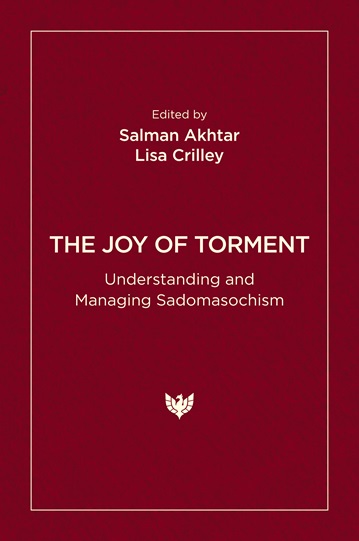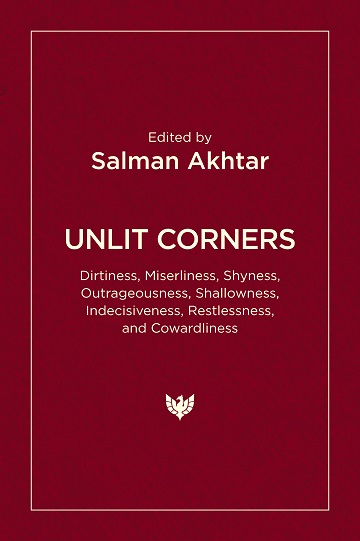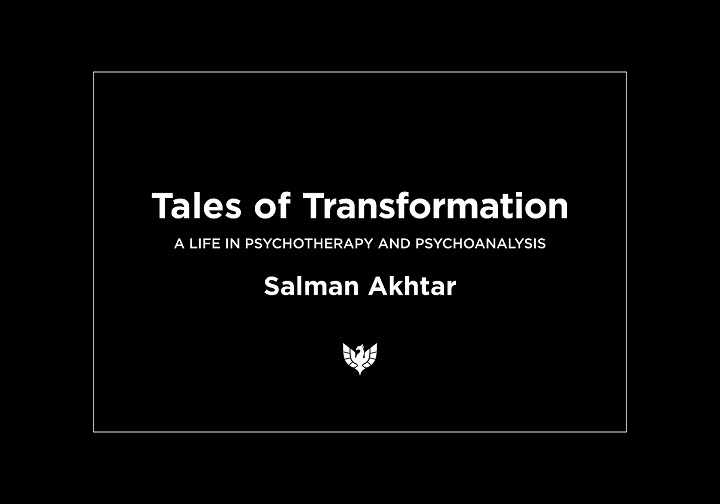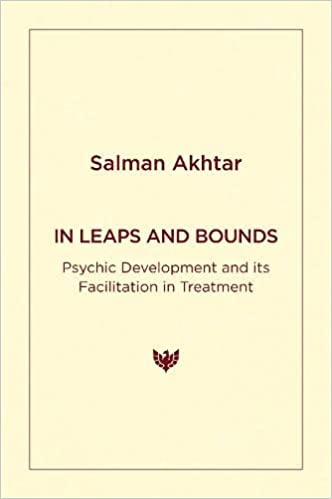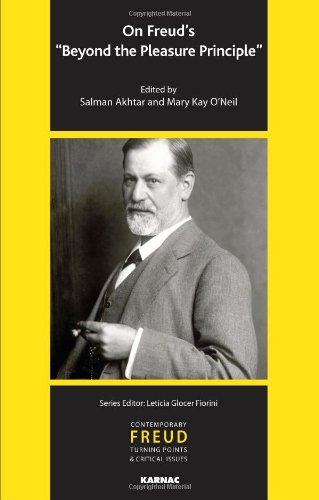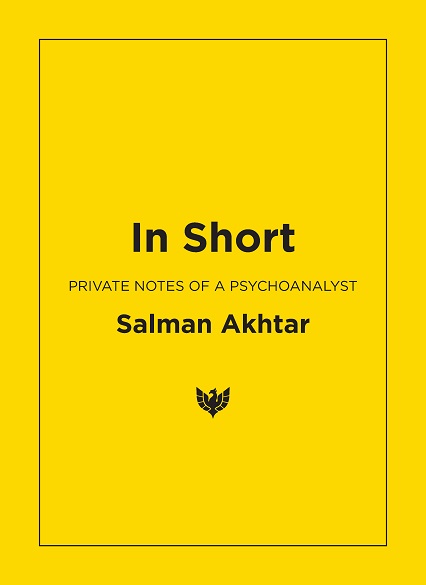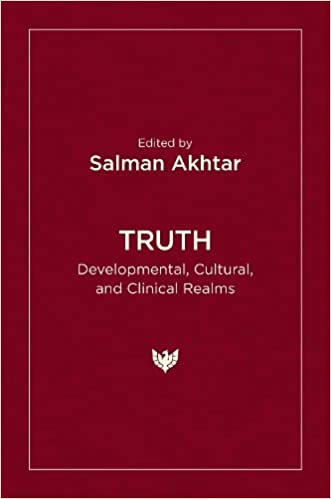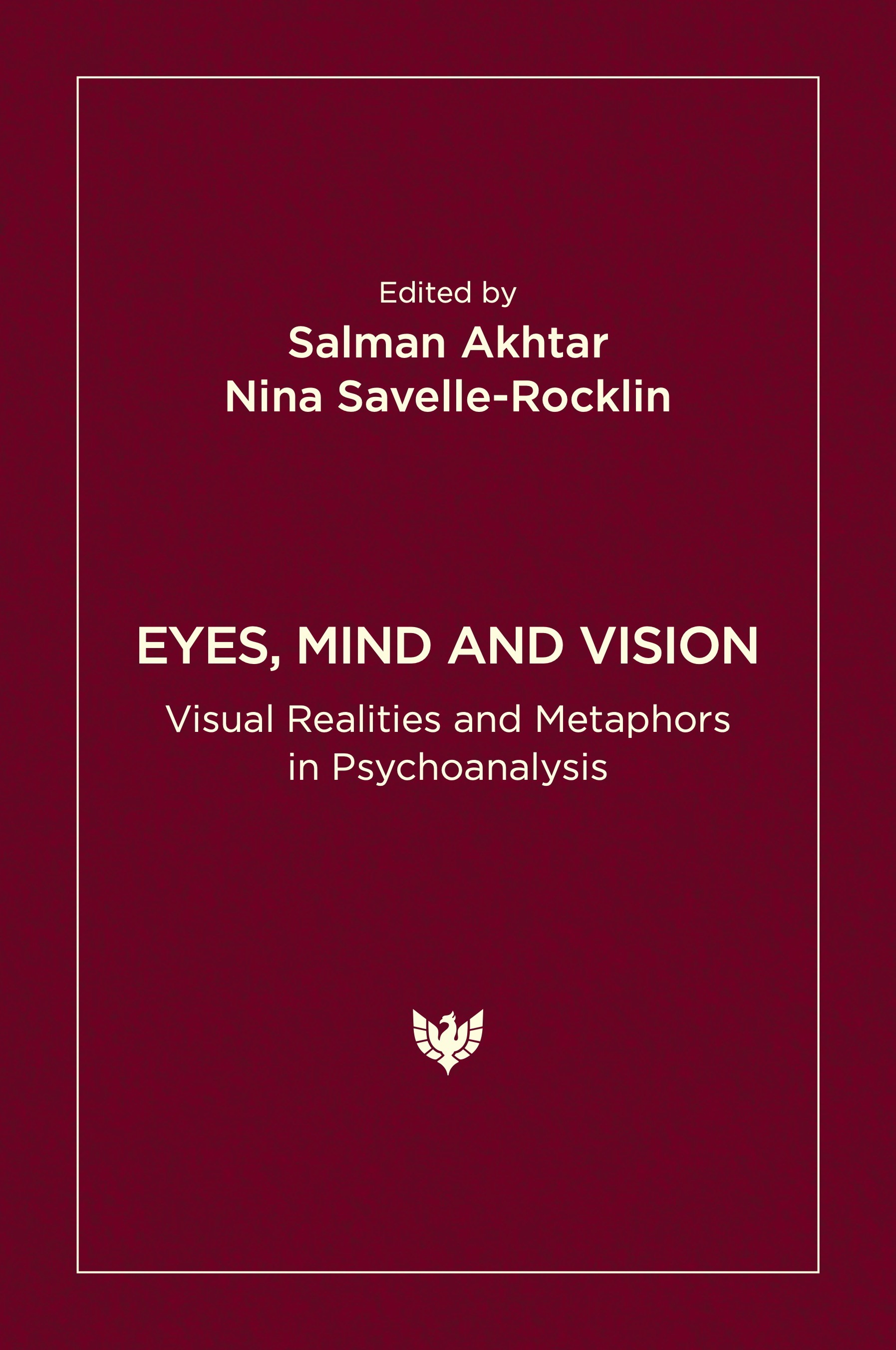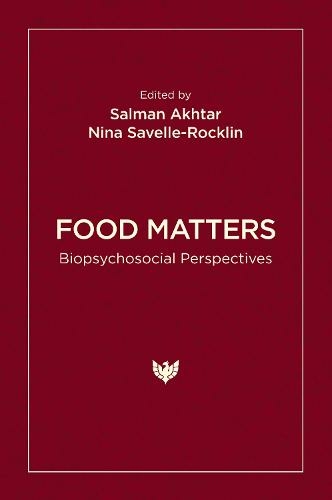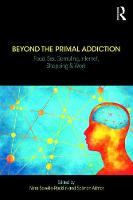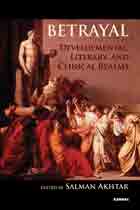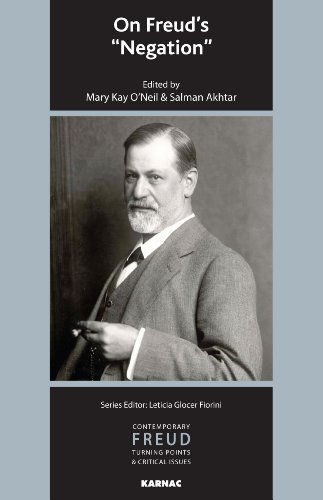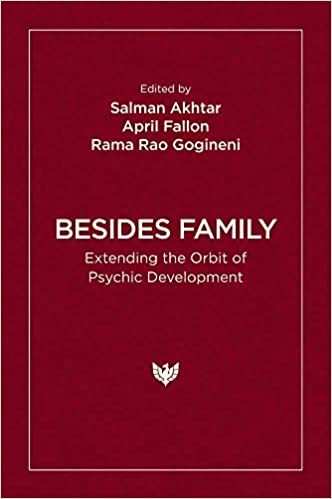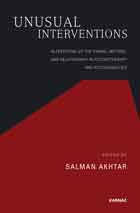Salman Akhtar

Salman Akhtar, MD, is professor of psychiatry at Jefferson Medical College and a training and supervising analyst at the Psychoanalytic Center of Philadelphia. He has served on the editorial boards of the International Journal of Psychoanalysis and the Journal of the American Psychoanalytic Association. His more than 450 publications include 120 books, of which the following twenty-three are solo-authored – Broken Structures (1992), Quest for Answers (1995), Inner Torment (1999), Immigration and Identity (1999), New Clinical Realms (2003), Objects of Our Desire (2005), Regarding Others (2007), Turning Points in Dynamic Psychotherapy (2009), The Damaged Core (2009), Comprehensive Dictionary of Psychoanalysis (2009), Immigration and Acculturation (2011), Matters of Life and Death (2011), Psychoanalytic Listening (2013), Good Stuff (2013), Sources of Suffering (2014), No Holds Barred (2016), A Web of Sorrow (2017), Mind, Culture, and Global Unrest (2018), Silent Virtues (2019), Tales of Transformation (2022), In Leaps and Bounds (2022), and In Short (2024) – as well as sixty-nine edited or coedited volumes in psychiatry and psychoanalysis. Dr. Akhtar has delivered many prestigious addresses and lectures including, most significantly, the inaugural address at the first IPA-Asia Congress in Beijing, China (2010). Dr. Akhtar is the recipient of the Journal of the American Psychoanalytic Association’s Best Paper of the Year Award (1995), the Margaret Mahler Literature Prize (1996), the American Society of Psychoanalytic Physicians’ Sigmund Freud Award (2000), the American College of Psychoanalysts’ Laughlin Award (2003), the American Psychoanalytic Association’s Edith Sabshin Award (2000), Columbia University’s Robert Liebert Award for Distinguished Contributions to Applied Psychoanalysis (2004), the American Psychiatric Association’s Kun Po Soo Award (2004), the Irma Bland Award for being the Outstanding Teacher of Psychiatric Residents in the country (2005), and the Nancy Roeske Award (2012). He received the Sigourney Award (2013), which is the most prestigious honor in the field of psychoanalysis. Dr. Akhtar is an internationally sought speaker and teacher, and his books have been translated in many languages, including German, Turkish, and Romanian. His interests are wide and he has served as the film review editor for the International Journal of Psychoanalysis, and is currently serving as the book review editor for the International Journal of Applied Psychoanalytic Studies. He has published eighteen collections of poetry and serves as a scholar-in-residence at the Inter-Act Theatre Company in Philadelphia. His Selected Papers (Vols I–X) were recently published and released at a festive event held at the Freud House & Museum in London.
Marriage and Its Discontents: Variations, Vexations, and Violations
With contributions from Anne Adelman, Salman Akhtar, Shawn Blue, Ann Eichen, Arpana G. Inman, Sameer Khan, Olga Santa Maria, Andrew Smolar, and Pratyusha Tummala-Narra.
This is a book about... (more)
Attics and Basements: The Evocative, Expressive and Embracing Functions of Homes and Other Human Dwellings
Attics and Basements investigates all manner of homes. Its approach is fundamentally psychoanalytic but borrows significantly from anthropology, history, architecture, religion, and general... (more)
The Joy of Torment: Understanding and Managing Sadomasochism
A search for answers on the subject of sadomasochism: its origins, forms and functions, nature, and societal status. An international group of distinguished psychiatrists, psychologists, and... (more)
Freud in Istanbul: Turkish Contributions to Psychotherapy and Psychoanalysis
A vital book that seeks to place Turkish contributions to psychoanalytic theory and practice on the international stage from which, until now, it has been curiously absent. It includes chapters from... (more)
Unlit Corners: Dirtiness, Miserliness, Shyness, Outrageousness, Shallowness, Indecisiveness, Restlessness, and Cowardliness
Unlit Corners endeavours to bring light to neglected character traits which many struggle to overcome. Filled with relevant case studies and carefully crafted psychoanalytic theory, the book... (more)
Tales of Transformation: A Life in Psychotherapy and Psychoanalysis
One hundred (and one) tales to mark Salman Akhtar’s one hundredth book! Divided into eight informative parts – Dr Akhtar’s journey to psychoanalysis; the lessons he learned from his teachers,... (more)
In Leaps and Bounds: Psychic Development and Its Facilitation in Treatment
A tour de force from the inimitable Salman Akhtar. Dr Akhtar brings his encyclopaedic knowledge of psychoanalysis to present a deceptively simple guide to personality development across the full... (more)
On Freud's "Beyond the Pleasure Principle"
Freud's Beyond the Pleasure Principle constitutes a major landmark and a real turning point in the evolution of psychoanalytic theory. Pushing aside the primacy of the tension-discharge-gratification... (more)
In Short: Private Notes of a Psychoanalyst
In Short: Private Notes of a Psychoanalyst is wise, uplifting and inspiring. Salman Akhtar brings his talent for poetic literature to gift us 111 pithy ‘proto essays’ on a wide range of subjects. His... (more)
Comprehensive Dictionary of Psychoanalysis
This book provides easy to read, concise, and clinically useful explanations of over 1800 terms and concepts from the field of psychoanalysis. A history of each term is included in its definition and... (more)
On Freud's "The Future of an Illusion"
"The Future of an Illusion" reveals Freud's reflections about religion as well as his hope that in the future science will go beyond religion, and reason will replace faith in God. The discussion... (more)
Truth: Developmental, Cultural, and Clinical Realms
This edited collection gathers together erudite and considered contributions from Salman Akhtar, Cobi Avshalom, Brett Clarke, Mali Mann, Gila Ofer, Thomas Ogden, Louis Rothschild, Batya Shoshani,... (more)
Eyes, Mind and Vision: Visual Realities and Metaphors in Psychoanalysis
A vital investigation into the importance of eyes and vision in psychoanalytic theory, which includes conceptual innovations, linguistic nuances, illustrations from fairy tales and folklore, film... (more)
Food Matters: Biopsychosocial Perspectives
Food matters because food is essential to sustain life, and food matters are complex and wide-ranging, encompassing the symbolic as well as the practical. The rich discussions of the relationship... (more)
The Wound of Mortality: Fear, Denial, and Acceptance of Death
Death is a much avoided topic. Literature on mourning exists, but it focuses chiefly upon the death of others. The inevitable psychic impact of one's own mortality is not optimally covered either in... (more)
Matters of Life and Death: Psychoanalytic Reflections
The author's focus in this book is upon the intrapsychic vicissitudes of what it means to be truly alive and how death accompanies us at each step of our life's journey. He attempts to show that,... (more)
Beyond the Primal Addiction: Food, Sex, Gambling, Internet Shopping and Work
Written by experienced practitioners in the fields of addiction and psychoanalysis, and illustrated by a range of moving vignettes, this groundbreaking book examines the psychological foundations of... (more)
Betrayal: Developmental, Literary, and Clinical Realms
Betrayal underlies all psychic trauma, whether sexual abuse or profound neglect, violence or treachery, extramarital affair or embezzlement. When we betray others, we violate their confidence in us.... (more)
Broken Structures: Severe Personality Disorders and Their Treatment
This book integrates psychiatry and psychoanalysis to present deeper and sounder clinical profiles of the personality disorders than have been hitherto available. (more)
On Freud's "Negation"
Ever since Freud proposed that certain ideas can be permitted to become conscious only in their inverted and negative forms, interest has grown into the entire realm of the presence of absence, so to... (more)
Interpersonal Boundaries: Variations and Violations
Across the lifespan we may experience moments of sublime intimacy, suffocating closeness, comfortable solitude, and intolerable distance or closeness. In Interpersonal Boundaries: Variations and... (more)
Immigration and Identity: Turmoil, Treatment and Transformation
Why do people migrate from one country to another? What is the difference between an immigrant and an exile? What determines the psychological outcome of immigration? Can one ever mourn the loss of... (more)
Besides Family: Extending the Orbit of Psychic Development
With contributions from Salman Akhtar, Patricia Boguski, Ann Eichen, April Fallon, Theodore Fallon, Jr., Rama Rao Gogineni, Mark Moore, Sonja Ware.
Collectively authored by psychoanalytic... (more)
Unusual Interventions: Alterations of the Frame, Method, and Relationship in Psychotherapy and Psychoanalysis
Radical departures from the set and familiar rules of technique often become necessary in the course of psychotherapy and psychoanalysis. These can include conducting a session outside the office,... (more)
The Colors of Childhood: Separation-Individuation Across Cultural, Racial and Ethnic Diversity
Starting from a separation-individuation perspective, this text discusses cultural issues in child rearing and clinical practice. Included are chapters on African-American, Japanese, and South... (more)
Does God Help?: Developmental and Clinical Aspects of Religious Belief
Can psychoanalysis lead us toward understanding the roots and nature of religious belief? In this text, five classical psychoanalysts representing five different religious faiths share their... (more)
New Clinical Realms: Pushing the Envelope of Theory and Technique
Focusing on facets of mental functioning and psychopathology that remain largely unrecognized in psychiatric and psychoanalytic literature, this work raises intriguing questions about man's... (more)
Beyond the Symbiotic Orbit: Advances in Separation-Individuation
In this tribute to Selma Kramer, eminent child analyst and colleague and close friend of the late Margaret Mahler, senior analysts explore the continuing relevance of Mahler's... (more)
A Quest for Answers: A Primer of Understanding and Treating Severe Personality Disorders
This text examines severe personality disorders from various angles. It covers: diagnosis and differential diagnosis; structure and dynamics; origins and development; evaluation and triage;... (more)
The Internal Mother: Conceptual and Technical Aspects of Object Constancy
This work analyses the concept of object constancy in the light of developmental research and clinical practice. The clinical implications of disturbances in object constancy are discussed, with... (more)


